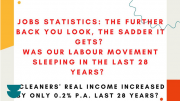https://www.facebook.com/laoliang/posts/pfbid08PjfWc4dQfvQmYLbx1ovzuHMEQJHSQTnFf6LUbQPQit781Ke8h8udDxV6HFDgdj8l
“4 money tips to note when mortgage rates rise” (ST, Jul 10)
“Cash or CPF
Where possible, it is still better to use more cash than CPF, even when home loans are getting more expensive. When you have less cash to spend, you then have to hold back on splurging on non-essential items.
Any balance in CPF still earns more than the balance in your bank account.
More importantly, view CPF as your back-up resource – whenever cash flow is tight, you can make an online request to use more money from CPF to pay the loan.
If you do not even keep a decent sum and have emptied your CPF account for a housing loan, you will not have access to additional funds should the bigger hike come.
Remember that it is good retirement planning to refund money that was withdrawn from your CPF when you have finished paying your housing loan.
Once you have set aside the retirement sums at 55, your CPF account is more versatile than a bank account – money that is refunded there will earn 2.5 per cent interest and you can withdraw it as and when you need it.”
Comment:
So, it is better to use your cash to pay for your residential property, instead of CPF?
From a risk perspective – it may arguably, generally be more prudent to use your CPF, because in the event of financial difficulties due to job loss, income cut, disability, sickness, accident, etc – your cash savings may help you for a longer period, than if you had used most of your cash to pay for your property
In my volunteering in financial counselling in the last 2 decades or so – I have come across many cases, whereby some became much more financially stressed or bankrupt, because they had used cash instead of CPF, leaving them with insufficient cash savings for an emergency, prolonged period of financial stress, insolvency (bankruptcy), etc
Of course, there is no one size fits all, and it depends on each individual’s situation
In the final analysis, perhaps an important consideration may be whether your cash (which you did not use to pay for your mortgage), is able to earn a higher return (considering the risk-return probabilities), than the 2.5% in the CPF ordinary account?
Another way of putting it may be that – if you simply put most of your cash in a bank savings account to earn 0.05% interest – then perhaps, the balance of the risk and probabilities, may be that – which is possibly or likely to be the bigger problem? – Getting more interest or the risk of possibly greater financial stress in the future?
“Similarly, you can also use excess funds in your CPF to make lump-sum payments.
In times like this, you would want to reduce or pay off your loans as soon as possible so that you can lessen the impact of rate hikes on your cash flow.
After all, you cannot avoid paying the debt, which is a big obstacle to your retirement planning – the sooner it is cleared, the sooner you can start growing your savings again.
Ask any home owners who have no debt and they will tell you that they actually look forward to rate hikes as it means they can enjoy higher fixed-deposit rates soon.”
Comment:
If you are on a bank loan – “The total amount all owners are allowed to use for your property will increase by 20% of the lower of the purchase price or the valuation price of the property at the time of purchase. No further CPF usage is allowed thereafter”
So, from a risk perspective – if you use your CPF to make early lump sum payments to reduce your loan, if you become financially stressed – you may not have enough cash to service your mortgage.
Thus, possibly a higher risk of foreclosure, because you do not have any CPF allowable, (even if you have money in your OA account) to service your mortgage
0
People reached
0
Engagements
–
Distribution score
Boost post
Like
Comment
Share




